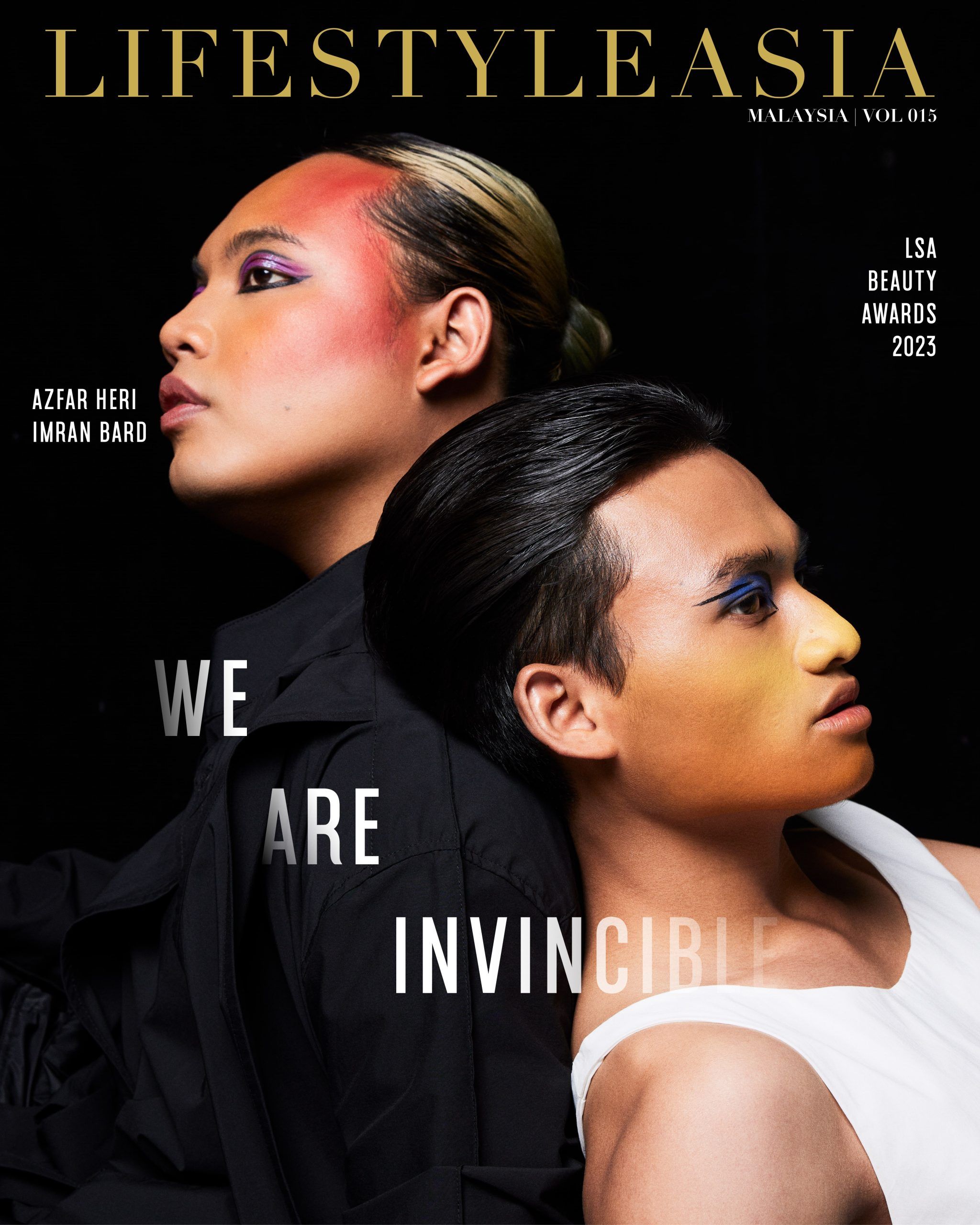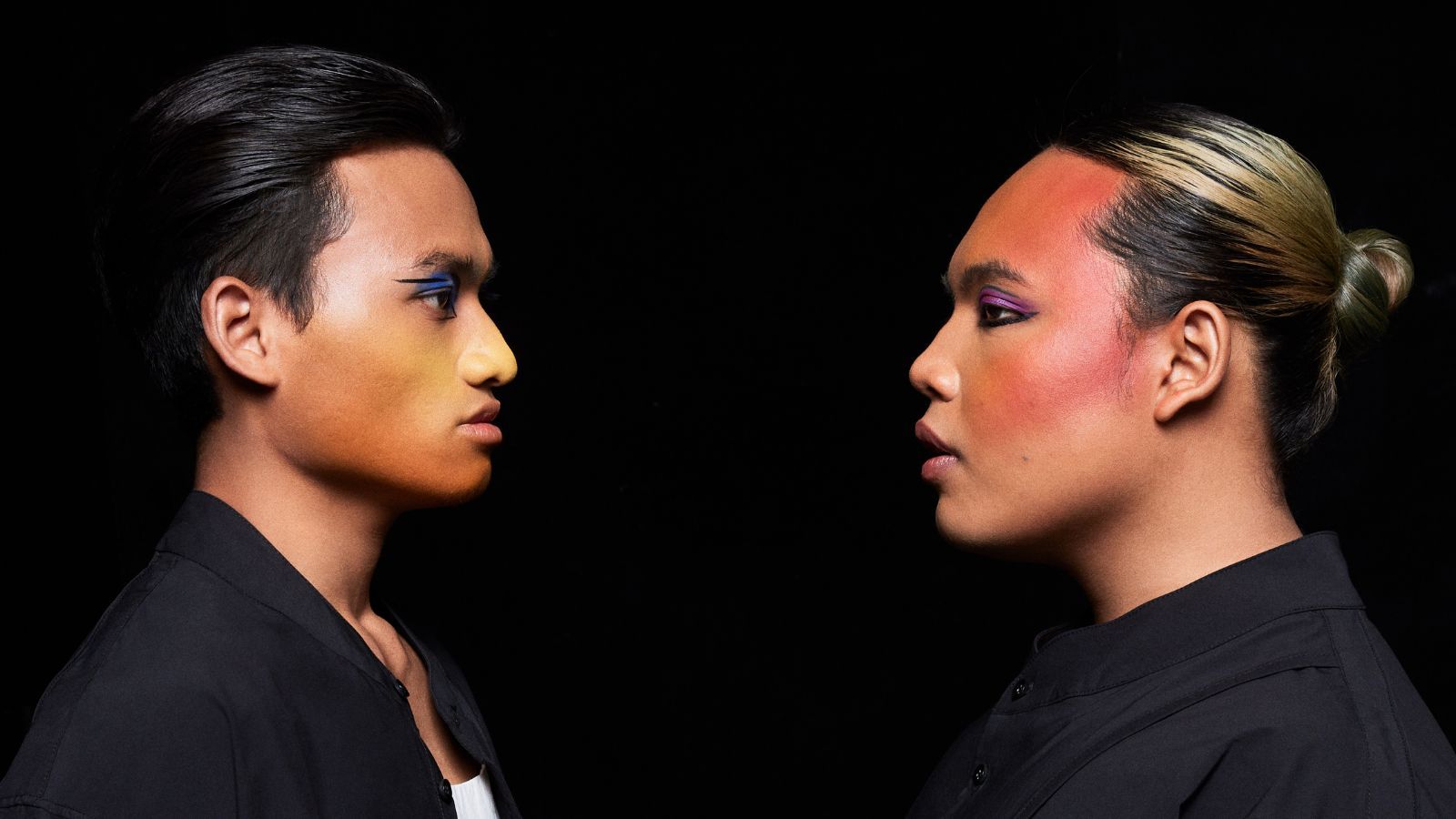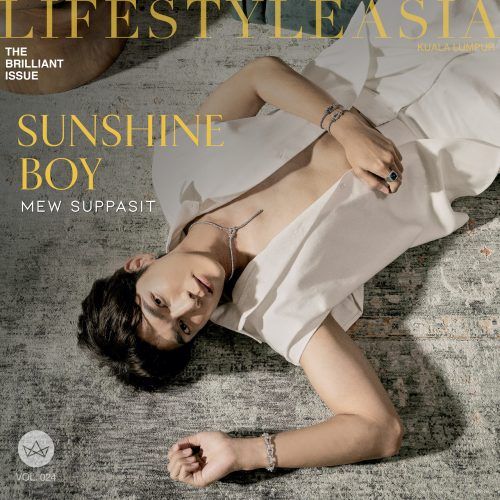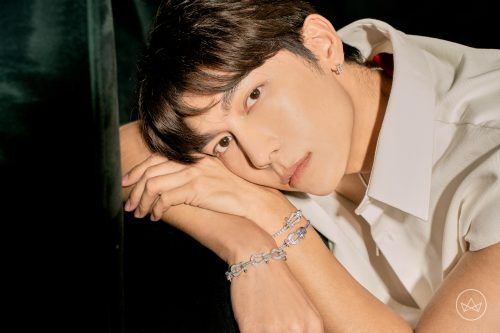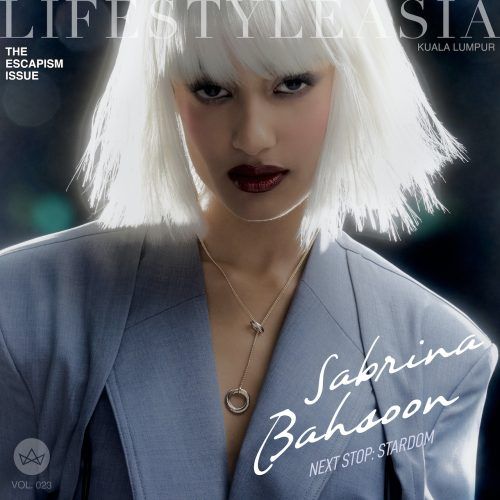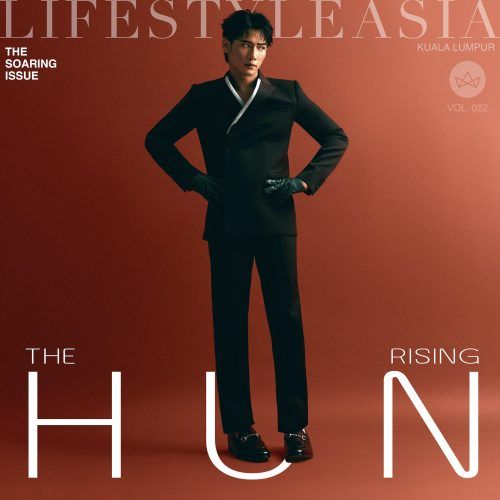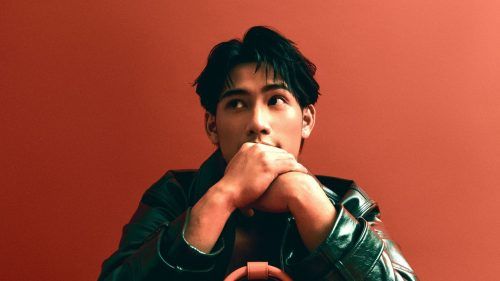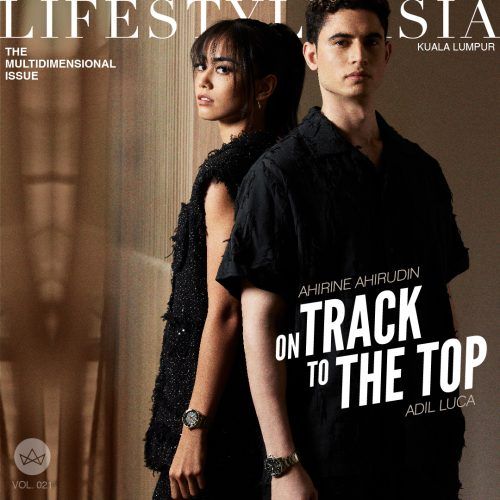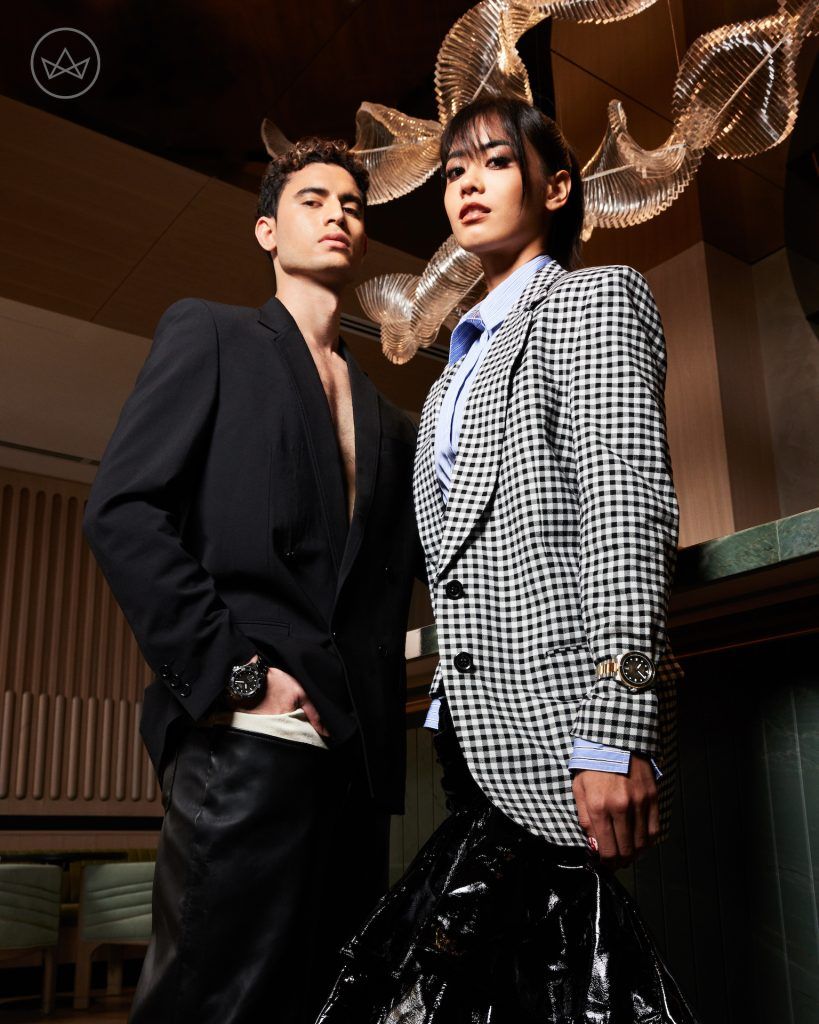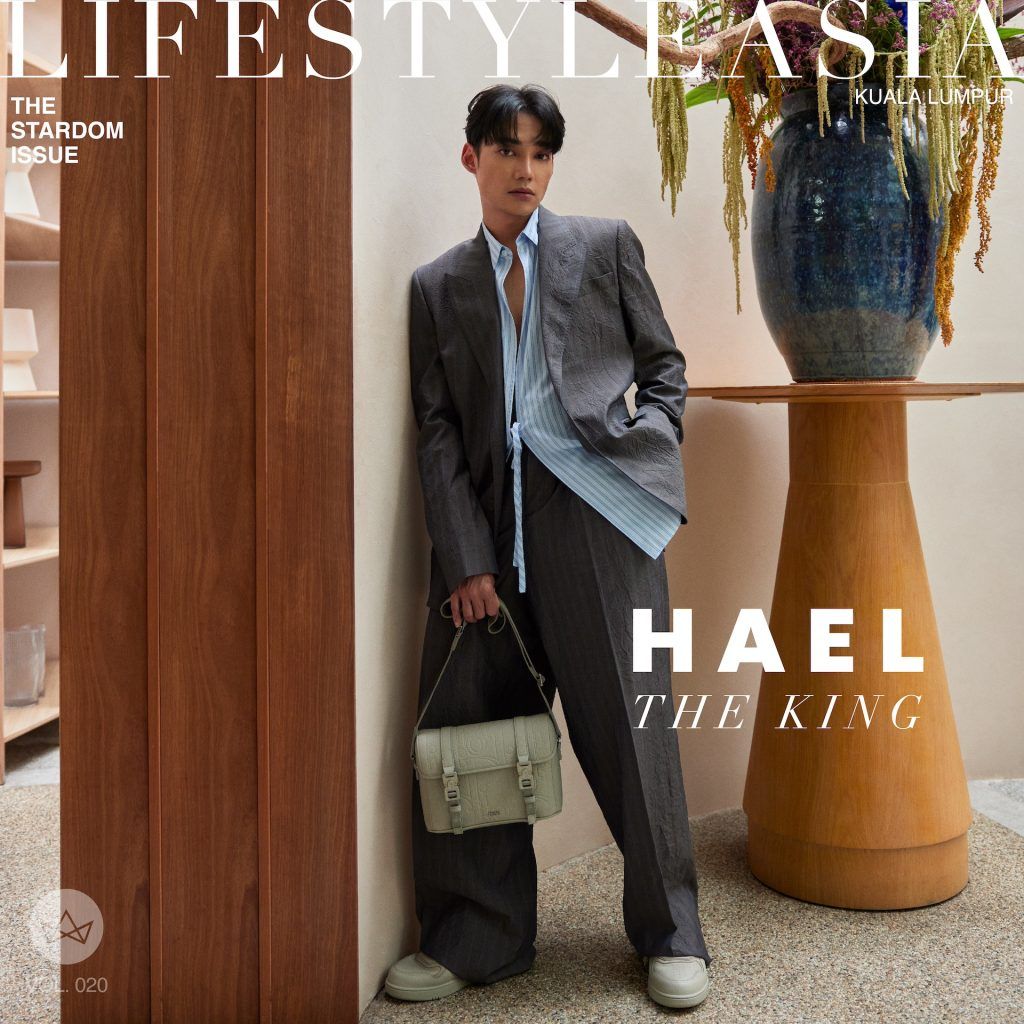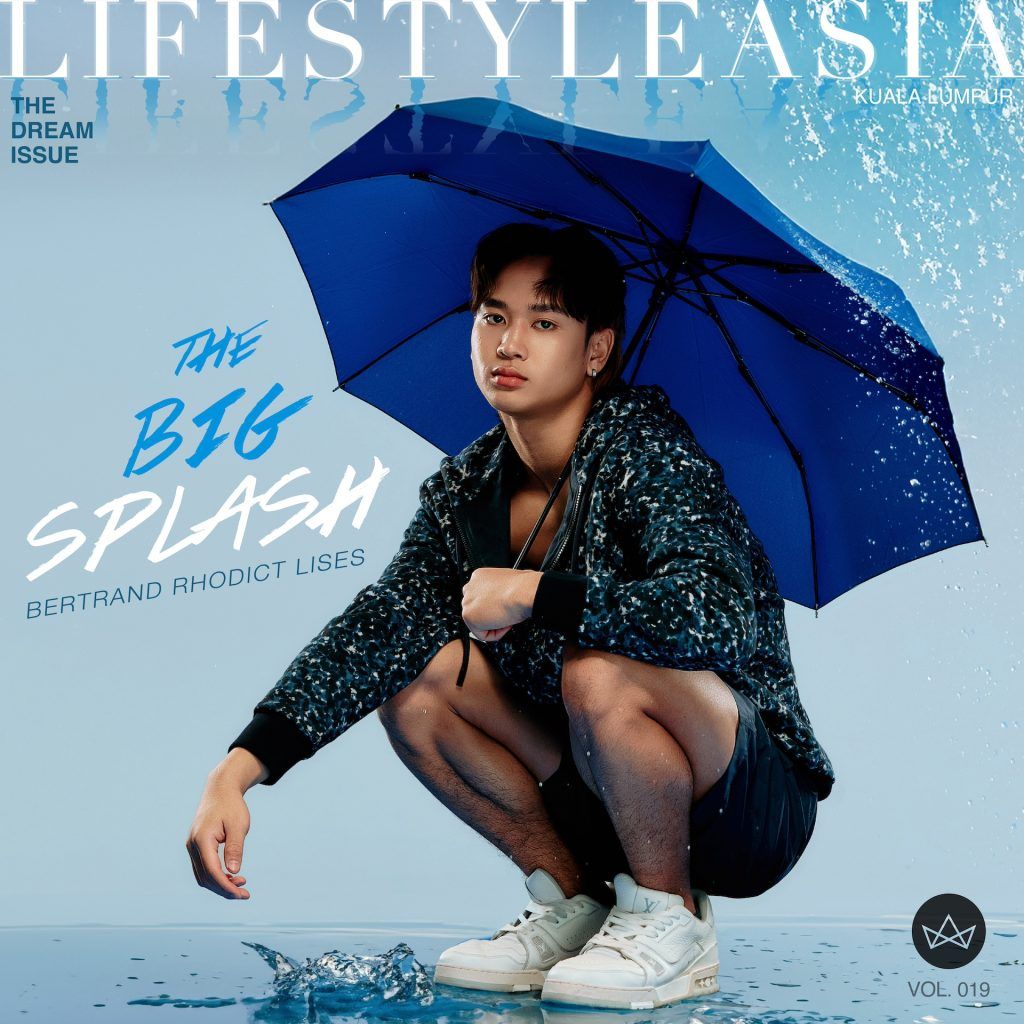These days, digital creators going viral is a social phenomenon. But for Azfar Heri and Imran Bard, who have clamoured through the vlogging days of YouTube, it’s a natural shift in their careers. We usher in the month of October with the two fast-growing TikTok stars gracing our digital cover as they open up about their creative journeys, their mentor-mentee friendship, and breaking the ‘masculine’ beauty ideal.
On TikTok, anything goes. Or perhaps I’ll rephrase: anything goes on TikTok — literally. There’s no place quite as unfiltered (or as real as it is fake; as brutally honest as it is messy) as TikTok. Where Instagram is the more polished, ‘pristine’ cousin, TikTok favours the fearless. Once upon a time, a video’s set-up would be a process in itself; now, you pull out your phone anywhere, film yourself in public for a few minutes and you’re set. Take Tube Girl for instance. All it took was some brazen self-assurance, windswept hair and good angles to turn a tedious train ride into what is known today as the ‘#TubeGirlEffect’. Thus, going into TikTok with an appreciation for the young and fearless is also how I found myself captivated by a video of Imran Bard, on the streets of Seoul at night, mumbling “gwenchanayo” (“it’s okay” in Korean) over and over again for thirty seconds.
“My social anxiety is scared of you,” one comment reads. It’s a bit of a backhanded compliment, but the message is clear. Imran is totally unabashed and unbothered by what anybody has to say. At 22, he embodies the motto that many Zoomers live by: “I am cringe, but I am free.” The fear of embarrassment is often the thing that stops us from being unapologetically ourselves — and to that, the Zoomers say, no more.
If you’ve familiarised yourself with Imran’s videos, you’ll have noticed that he runs in the same circles as fellow content creator Azfar Heri. “I was super nervous when I met him for the first time,” Imran recounts, “because Azfar is an extrovert while I’m an introvert. He was the one who kept up the conversation with me, made me feel comfortable because he knew I was an introvert. I mean, it’s ‘the’ Azfar Heri kot, of course lah I nervous kan? And up until now, he’s become a bit like my abang, you know? He knows what I want to do with my content and he gives me a lot of guidance on what to post. Kinda like my mentor pun ada.”
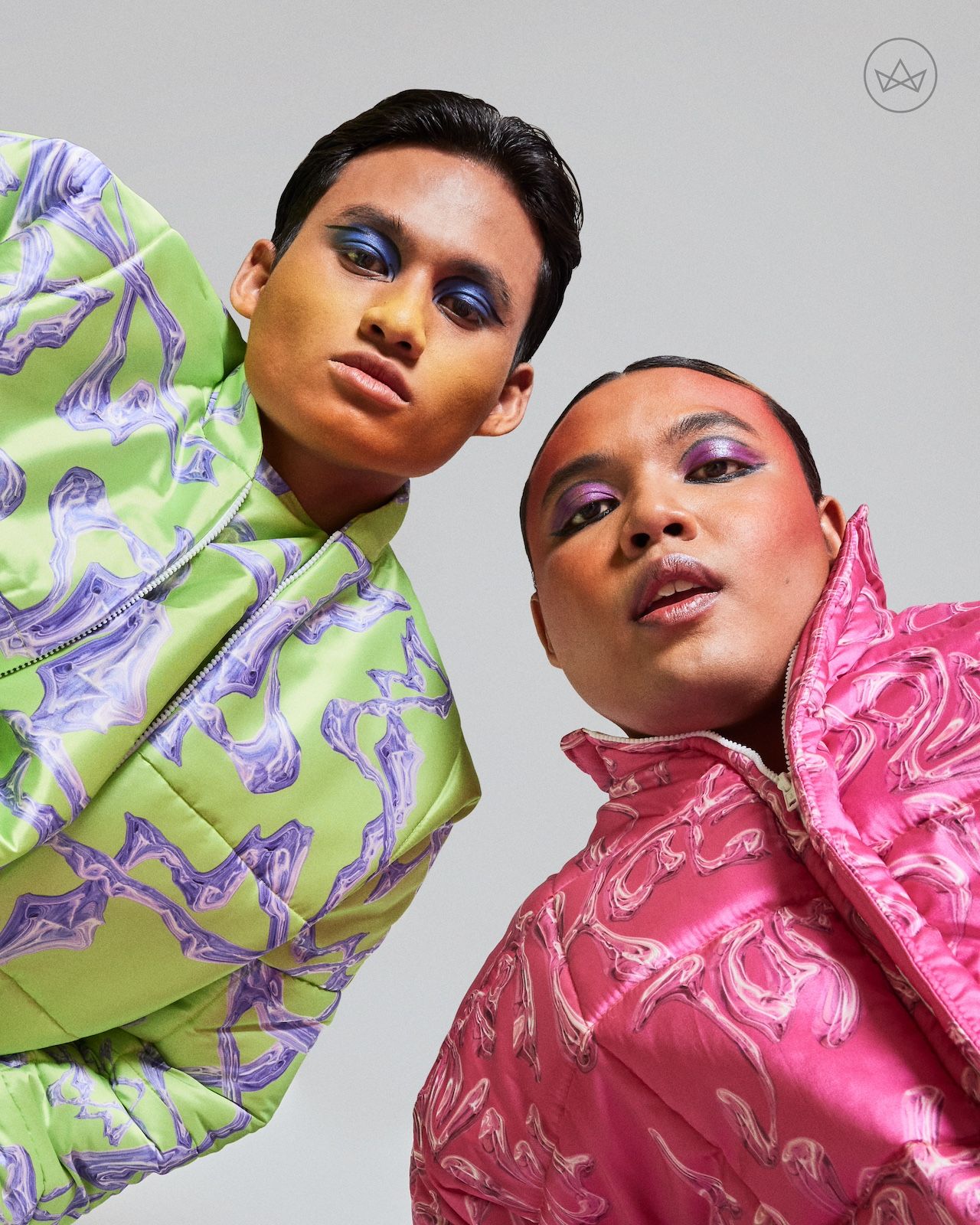
We’re on set for our digital cover shoot — it’s a slow, downcast morning in October but as soon as the Azfar Heri slips in through the doors, the energy picks up in an instant. His long, flowing locks — which he has come to be known for — hang way past his shoulders in a muted shade of green. He’s dressed down and makeup-free, and it’s a delight to watch his face light up when we show him the range of outfits for him to try on. For the uninitiated, Azfar Heri first built up his online brand on his Instagram even before the pandemic, where his love for food and cooking took him to the Twitter-verse, and prompted him to pursue YouTube stardom. He quickly found a 1-million-strong following that propelled him into the limelight as a lifestyle influencer, working with various brands and expanding his content to include vlogs and ‘unboxing’ videos.
Finding the footing as a TikTok star
It’s interesting to note that both Imran and Azfar come from humble beginnings. “I grew up in a kampung,” Imran tells me, “and I’ve always loved to cook because my family runs a food business. So, I learned to cook all kinds of things — I even made satay to sell by the roadside, and I would just spend a lot of time eating and cooking every day.” Like Azfar, Imran’s first foray into content creation was through his cooking videos on his YouTube channel. “But they didn’t blow up pun. Just suka suka — I wasn’t expecting anything pun. And then I started playing around with TikTok during the lockdown.”
That too, Imran assures, had been ‘just for fun’. In bite-sized clips (10 to 15 seconds at most), he delivers comedy through his deadpan voice, erratic dancing and random outbursts. Yet this ‘fun’ quickly garnered 2.2 million followers on the platform, with his videos being reacted to by local and international stars alike — the most recent being South Korean actor Lee Yi-kyung. An extensive use of TikTok also comes in the form of sound bites and ‘stitching’, and Imran’s very relatable remarks often make for the best type of content.
“I like to membebel (speak gibberish) when I make my cooking videos, too,” he says. Across the social media platforms, he adopts various voices that first-time viewers might not be able to tell which is the ‘true’ Imran Bard persona. “I talk like mak cik, and I think that’s what draws people into my content and sets it apart.”
Azfar’s is not your average YouTube vlogger success story. As soon as his content on all four platforms (YouTube, Instagram, Twitter and now TikTok) grew and landed him on the ‘map’ as a local bellwether of lifestyle, he began playing it smart. The content Azfar puts out on each platform is well-thought-out, clearly geared to its respective audience. “But even across these four platforms, there’s one thing I always keep the same,” he elaborates, “and that is myself, my character.”
While Imran’s brand of content leans more toward ‘bizarre’, Azfar is just as bright and bubbly on social media as he is in person. He begins each clip with a warm, enthusiastic, “Hai guys!” and takes us — the viewers — on whatever adventure he’s about to embark on, be it a trip abroad, a fashion shoot, concerts, and even the daily mundanities of life like a lunch out at a new café. With his winning smile and natural bent for comedy, it’s very easy to be drawn in by Azfar’s videos and end up bingeing them aimlessly for hours.
Toeing the line between being ‘confident’ and ‘shameless’
You would think TikTok fame isn’t something that just happens to anybody, but despite being one of the biggest platforms out there right now (over a billion users and counting), its sense of community is a lot more close-knit than you’d expect. Birds of a similar ‘For You’ page (FYP) indeed flock together, especially as a young adult navigating through life. It’s almost like these 20-somethings on TikTok are going through the growing-up process together, in all its ache and mess and glory.
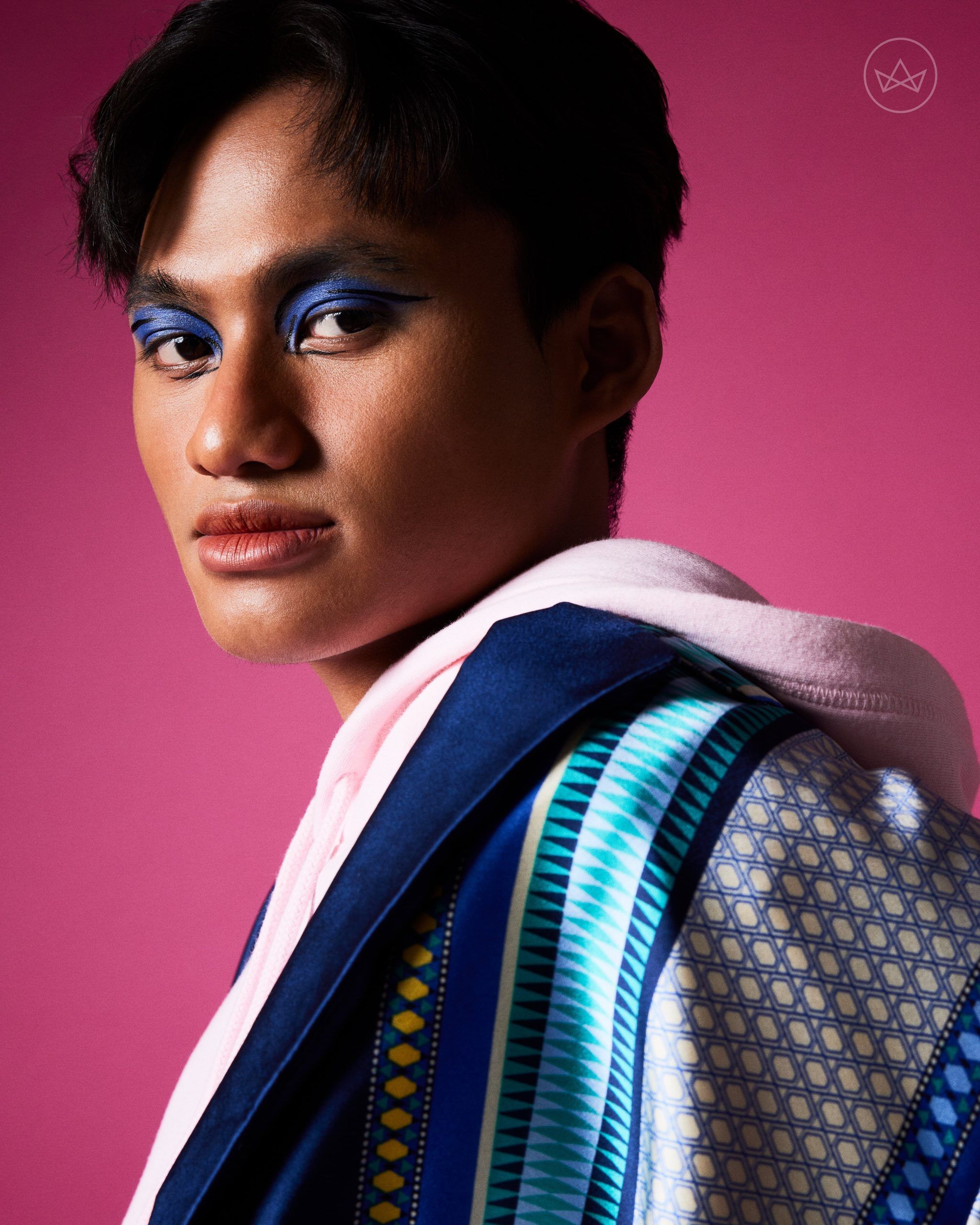
“At my age, at twenty-two — of course we’re going to make so many mistakes,” Imran says, his voice a little exasperated, understandably so. The nitpicking on social media often makes being young seem like a crime in itself. “Sometimes we don’t even know what we’re doing. We just want to enjoy ourselves. And on top of that, we’re exposing ourselves to the public, kan? So, of course people will start looking for our faults. I’m here to entertain. We can’t be serious 24/7. And I do make meaningful content too, on my YouTube for example. They can choose what they want to see. And if they choose to hate anyway, that’s on them.”
So the trolls stay under the bridge for Imran. “If the comments are put in a positive way, telling me to do the right things, giving me good advice, I’ll listen of course,” he says. “But then you also have the negative comments, the ones you know are just there to hate on you, I’ll just ignore je lah.” The responses to his random videos often fall between awe and morbid fascination — like something strange they can’t seem to look away from. Then he adds, much to my surprise: “I wasn’t always this confident, you know.”
“So how did you develop this confidence then? How did you become someone who…” I begin, and Imran supplies, “You mean someone yang doesn’t give a—?”
“Exactly,” I laugh, “not everybody is brave enough to put themselves out there the way you do.” He tells me that ironically, hate comments were what got him to shed that last bit of ‘people-pleaser’ in him. “Basically, I sangat penat,” he admits. “It’s so tiring. I’ve tried my best but people still throw hate, so I ended up just going, lantak kau lah. I’ll do my own thing, and you can do yours. As long as I’m not doing anything wrong or harmful, it’s okay.”
Azfar, not quite so blasé as Imran, had his confidence moulded at a very young age. The story writes itself: a shy and tender schoolboy, bullied for being ‘soft’, learns to own it later on in his life. “Lelaki lembut ni pantang sikit orang nampak (“people often can’t stand to see ‘effeminate’ men”),” he quips. “But it got to a point where I thought, ‘Okay. I accept myself. This is me.’ So whatever people say, well, it really depends on you whether you want to accept it or not. But what’s most important is that I accept myself as I am.”
What Azfar means, I realise as we’re in conversation, when he says that the one thing he keeps consistent is himself, is this: what you get from Azfar is essentially, quintessentially and unapologetically Azfar. There is no character that he’s playing, no alter ego he’s trying to embody. He even lets some of his little slip-ups stay in the final cut of his videos, a mark of authenticity (especially when I’ve seen the effort and the amount of retakes a single TikTok video comes with). It’s as if those couple of minutes you’ve spent watching an Azfar Heri video is actually you sitting with him, having a blast with a dear friend.
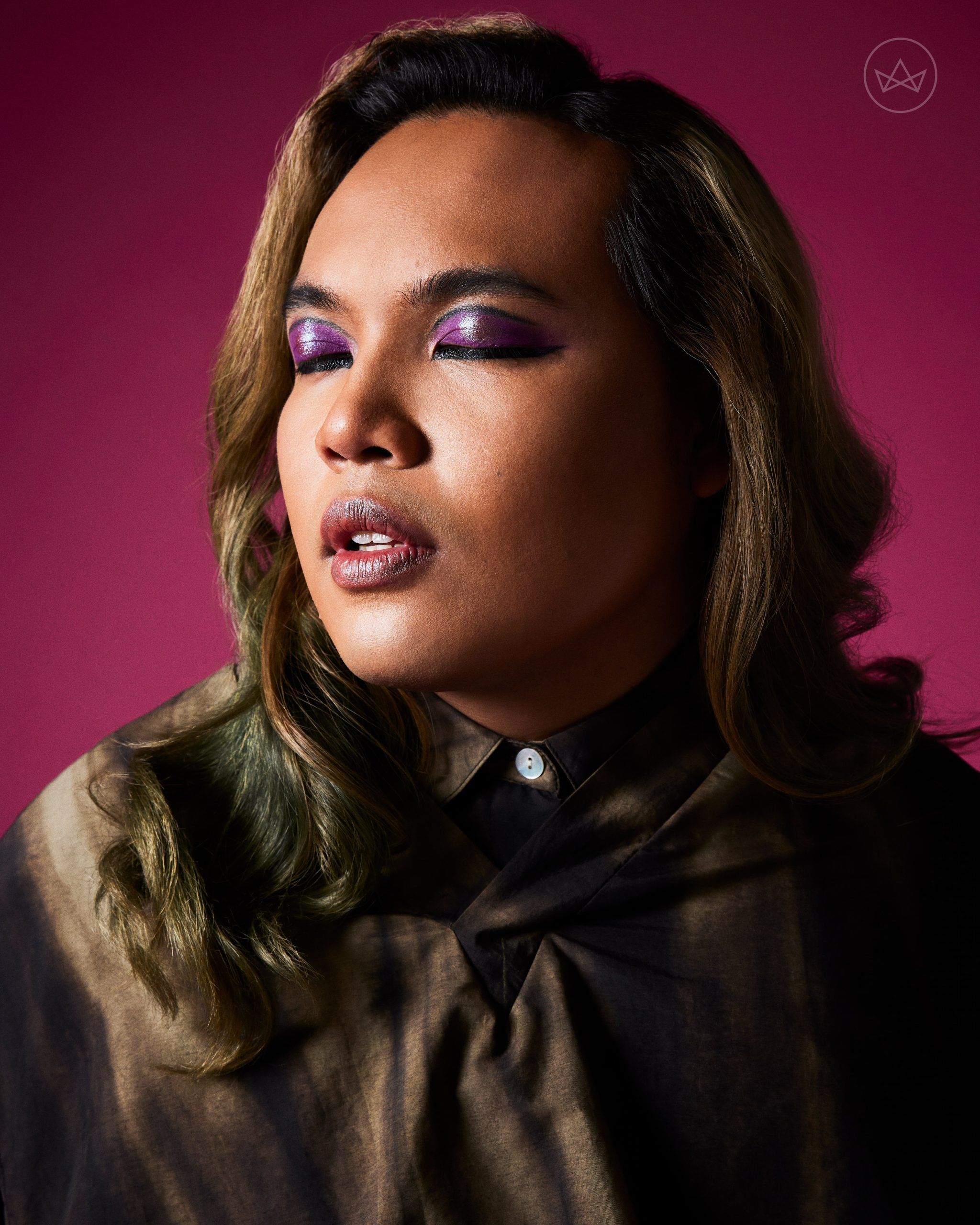
Keeping it real on social media platforms — especially with ‘slow living’ as the latest TikTok trend — isn’t some brand-new phenomenon. Since the days of Emma Chamberlain and Bretman Rock, lots of people have grown content out of the mundanities of their day, unscripted with a good sense of approachability and the occasional ‘rich hot girl era’ drop. (Azfar counts Rock among his biggest influences.) But it’s one of those things where you either have it or you don’t.
“I think that’s the price I have to pay when I choose to become a content creator,” Azfar muses when I ask him about the criticism that comes with the job. “Wherever you go pun, there will be people who don’t like you. There will always be people who talk shit about you. I guess it’s because manusia tak pernah rasa cukup (“people will never be satisfied”). They can’t stand to see others being happy, plain and simple.”
On unconventional beauty — what makes a modern man?
The rain fully settles, dulling the sky outside; we’re playing with colours in the studio. For our cover shoot, we give Azfar and Imran their close-ups, making sure to zero in on their faces. “When you’re filming your TikTok videos, it’s really all about this, isn’t it?” We vaguely gesture to Azfar’s profile as he’s making himself comfortable in front of the vibrant pink backdrop. “So, let’s see those expressions!”
Azfar absolutely nails the smize on his first try. It’s a shock not because we have any doubts about whether he can deliver, but because the fierce, fiery look is so far removed from his perky personality. “Look at you slaying that,” I can’t help but gush. He gets a touch-up — glitter-pink eyeshadow and matching glitter lips, with a liner underneath the eyes for that ‘untamed’ look. Azfar seems right at home, serving face like that, in a dark Kit Woo ensemble.
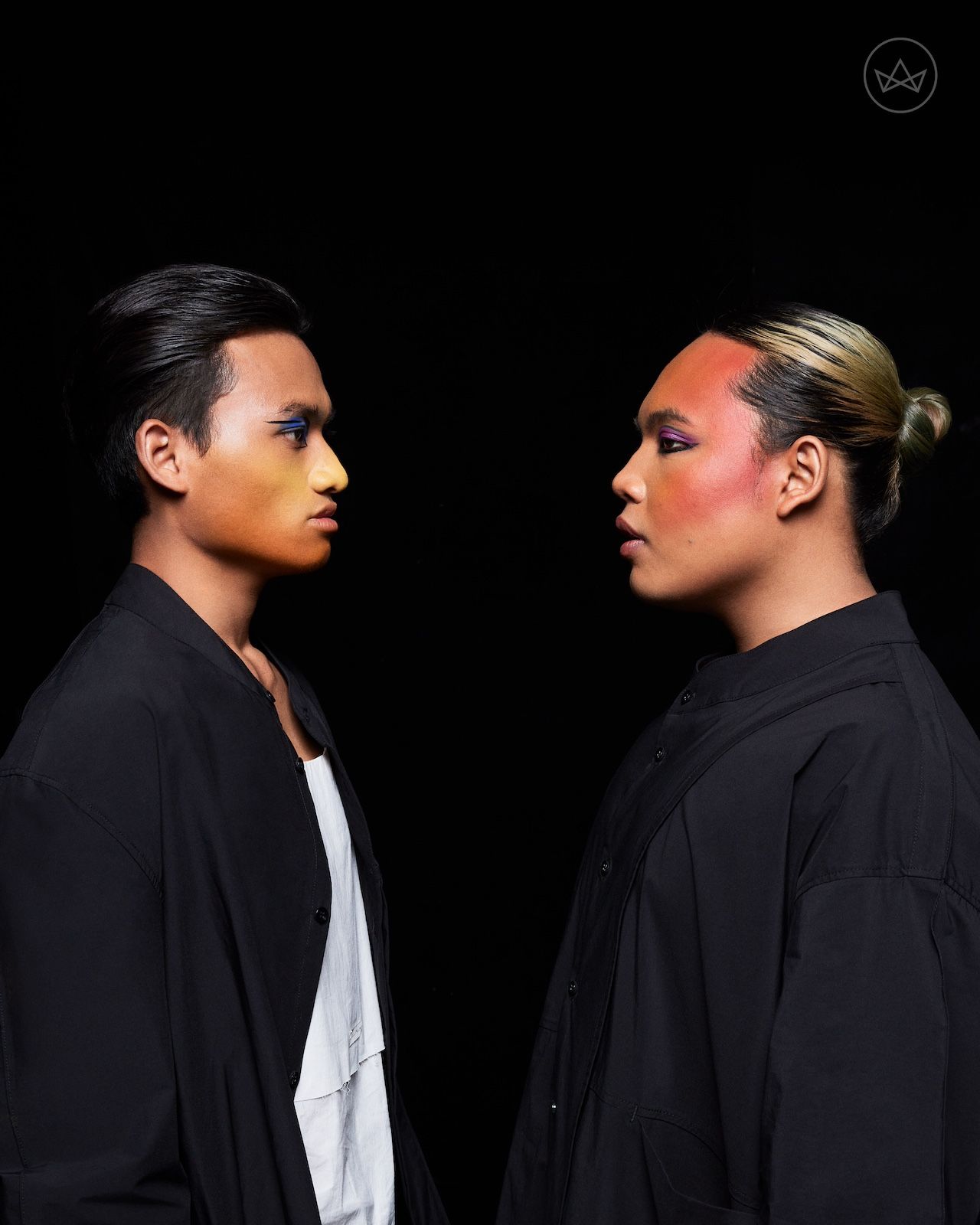
“I’ve always been into fashion dari dulu,” he shares. His first-ever fashion event he’d attended was Ralph Lauren. “And I’ve always been someone who’s happy-go-lucky, outgoing. So when I started really getting into fashion, I started going to events semua… I made a lot of friends, mingled with the community — and eventually I got to do campaigns with brands, fashion shoots and so on.” Azfar cites Kit Woo and Behati among his local fashion loves. “I like gebu-gebu (big and fluffy),” he reveals with a smile, “lain daripada yang lain (different from the rest). I like things that are more unconventional.” No wonder he looks up to Bretman Rock.
The great thing about TikTok — beyond the Zillennial humour, critical breakdowns of pop culture and intimate looks into people’s private lives — is also the societal change that comes with all this. As unfiltered as the platform is, it is also enthusiastically embracing, especially where young people discovering themselves are concerned. There are weekly shifts in beauty trends and lengthy studies on how different face shapes are better suited for different make-up looks — all geared toward positivity and acceptance.
“Even model scouting is basically done on social media now, and online castings are a thing,” Azfar says. “I can see that people are a lot braver when it comes to trying things out, compared to before when people were a bit more afraid or reserved. But now because everybody is doing it, thanks to social media, it’s pretty clear that people are becoming more confident with themselves and how they look. And I love it. Like, with men — it doesn’t necessarily mean they have to be a certain height, or be very muscular to be able to make it. As long as you have your basics down, and you know how to carry yourself, you can do it.”
Imran’s turn in front of the camera is a soft, graceful one — and leaves me practically seething with jealousy. “You have such a naturally pretty pout,” I can’t help but whine. Having just returned from Phuket last night, Imran is nearly dead with fatigue throughout the shoot, but still gives it his all. We all marvel at the many poses he throws at the camera, each one even more effortlessly alluring than the last.
“Nowadays, there’s no label anymore,” Imran muses. “Men can be happy with make-up if they want to. Men can be confident with make-up, men can feel free. And they’re not scared anymore to go out and be seen like that, because people are more accepting about the way that they look. And I think that’s really good. Especially for men like me, and our mental health. People are becoming more open-minded. Of course, there are some men who can’t accept this ‘change’, and I guess that’s fine for them. Because we’re not here to force them to accept us, but we’re just trying to live our lives the way we want to live. And I’m not gonna lie — I see that TikTok is one of the only places that really understand that, which is good for our society.”
